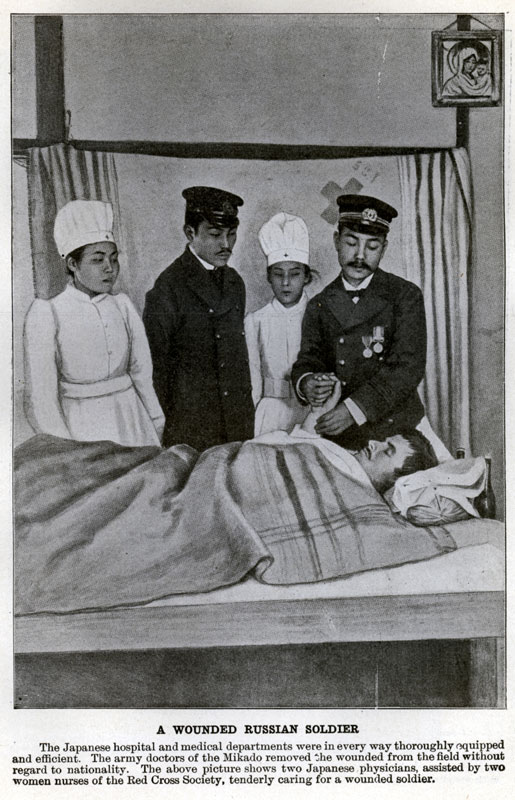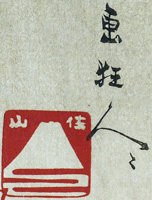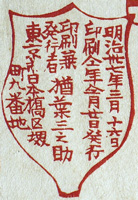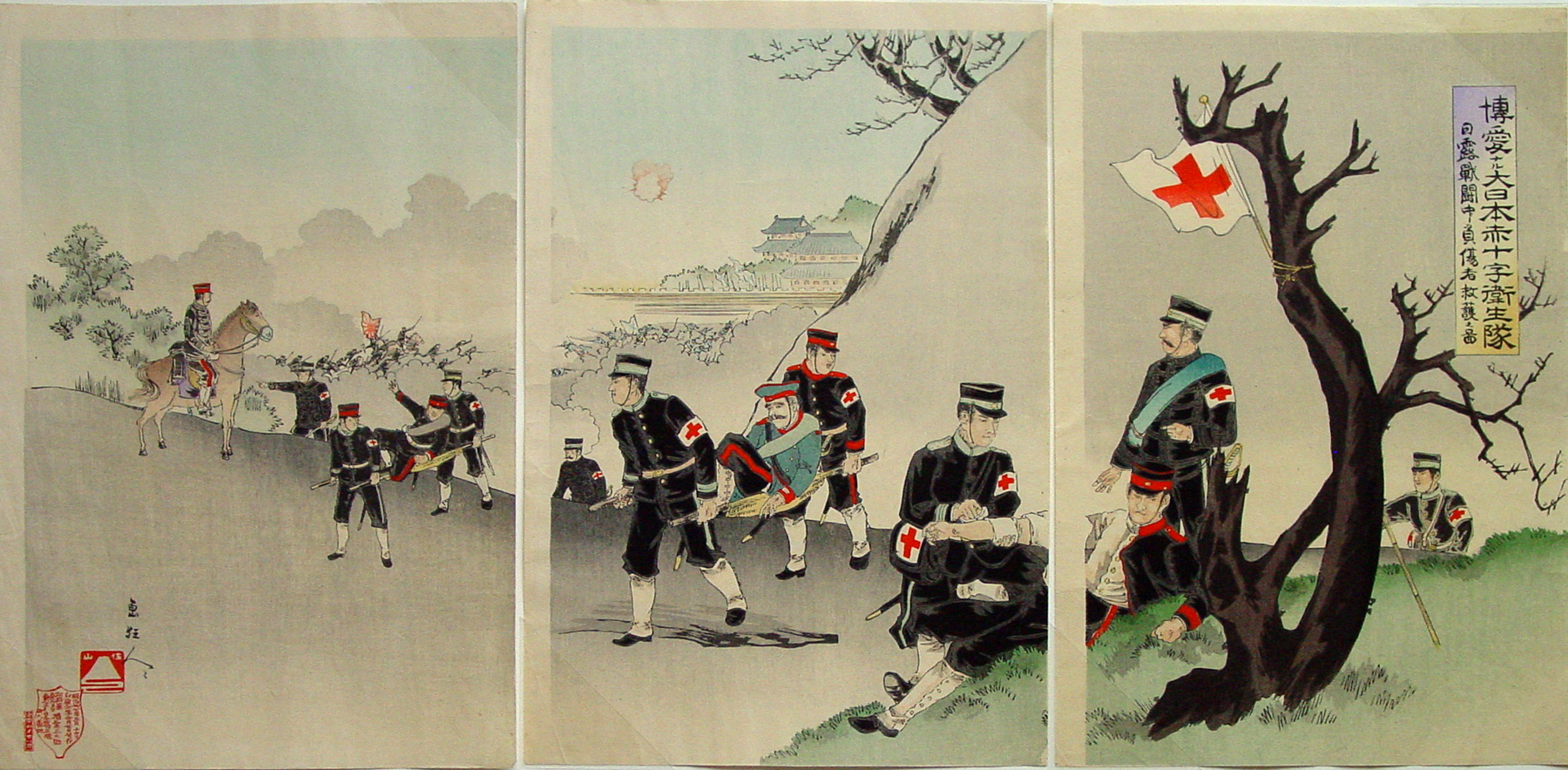About This Print
Source: A Much Recorded War: The Russo-Japanese War inHistory and Imagery, Fredrick A. Sharf, Anne NishimuraMorse, Sebastian Dobson, MFA Publications, 2005, p. 44As part of Japan's efforts to emulate Western institutions, the Japanese Red Cross was established in 1877, during the Seinan War (a.k.a. Satsuma Rebellion). By the time of the Sino-Japanese War [1894-1895], images of the Red Cross tending to fallen soldiers had become part of the standard iconography of the battlefield; the Japanese were to be seen as not only mighty but also magnanimous, as befitted an "enlightened" nation. Such descriptions would only proliferate during the Russo-Japanese War, with the Japanese Red Cross shown selflessly caring for Japanese and Russian wounded alike.
The Japanese Red Cross
Source: Wikipedia http://en.wikipedia.org/wiki/Japanese_Red_Cross
From the beginning, the Japanese royal family, especially Empress Shōken, provided active support for Red Cross activities. (See this collection's prints Picture of a Visit by the Empress to the General Staff Headquarters and Illustration of the Japanese Red Cross Society General Meeting.) During the Russo-Japanese War (1904-1905), the Japanese Red Cross played an outstanding role rescuing many Russian prisoners of war, gaining Japan a considerable amount of good public relations in the western press.
Source: Michael Duffy's First World War website http://www.firstworldwar.com/poetsandprose/ambulance.htm
The Japanese ambulance plan in the Russo-Japanese War specifically used Jonathan Letterman's ambulance corps plan for the Army of the Potomac in the American Civil War.

Source: Official History of the Russian-Japanese War: A Vivid Panorama of Land and Naval Battles, J. Martin Miller, 1905
Print Details
| IHL Catalog | #104 |
| Title or Description | The Humane Ambulance Corps of the Japanese Red Cross. Picture of Relieving Wounded Soldiers in the Russo-Japanese War (Hakuai naru Dai Nippon Sekijūji Eisei-tai Nichi-ro Sentō-chū Fushōsha Kyūgo no zu 博愛ナル大日本赤十字衛生隊 日露戦闘中負傷者救護之図) |
| Artist | Gakyō (active 1904) |
| Signature |  |
| Seal | Mount Fuji, Yamazumai 山住 (Living in the mountains) |
| Publication Date | March 20, 1904 (Meiji 37) |
| Printing Date | March 16, 1904 (Meiji 37) |
| Publisher |  [Marks: seal not shown; pub. ref. 378] |
| Carver |  |
| Printer | |
| Impression | excellent |
| Colors | excellent |
| Condition | excellent - full size, untrimmed sheets; pencil note on left margin of center sheet |
| Genre | ukiyo-e - senso-e (Russo-Japanese War) |
| Miscellaneous | |
| Format | vertical oban triptych |
| H x W Paper | 14 1/4 x 9 7/8 in. (36.2 x 25.1 cm) each sheet |
| H x W Image | |
| Literature | |
| Collections This Print | Museum of Fine Arts, Boston 2000.541a-c |


